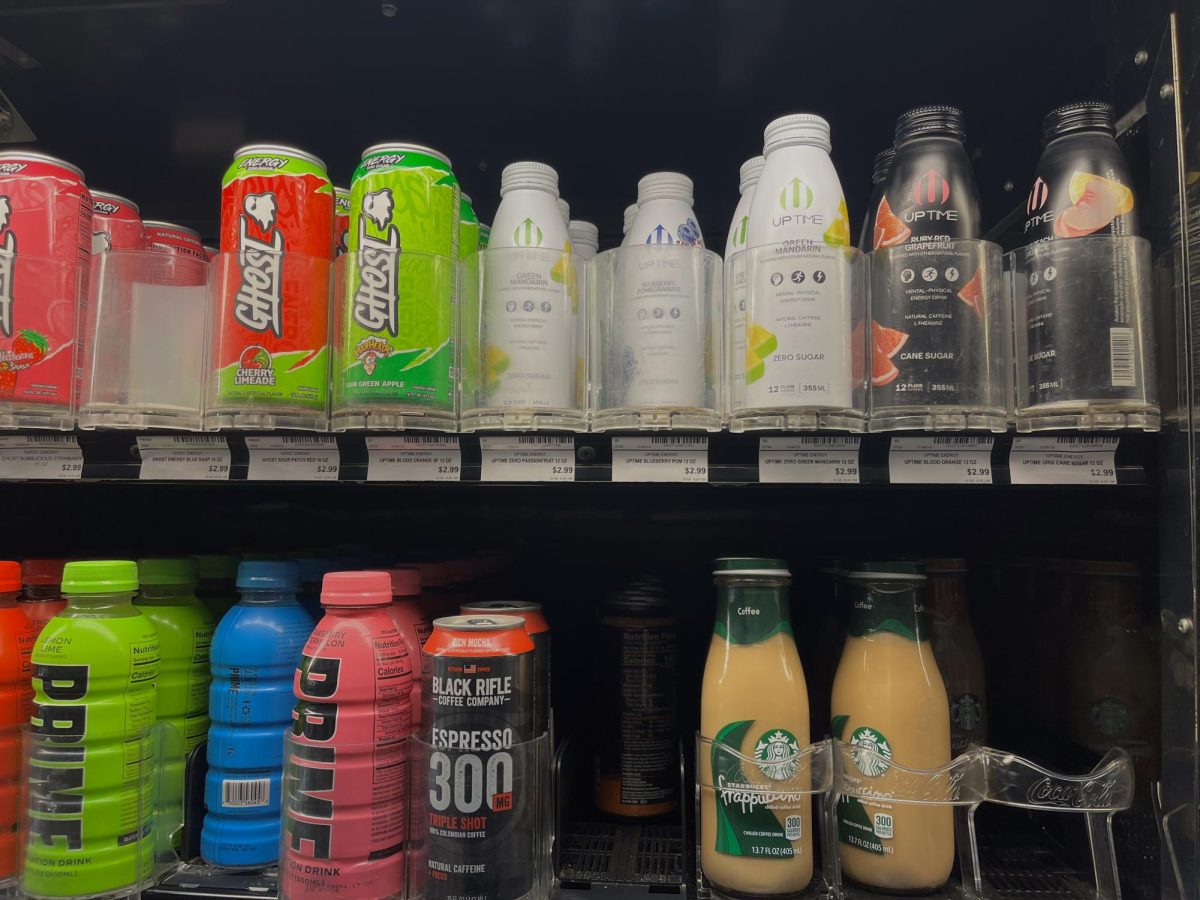Energy drinks have emerged as a regular drink for students, believed to help them focus more in school and improve their learning ability. According to the Centers for Disease Control and Prevention (CDC), in 2011, 1,499 adolescents aged 12 to 17 years went to the emergency room for an energy drink-related emergency.
Students don’t realize the risks of energy drinks and believe that they have a positive impact on them. However, as reported by dietitian Kristina Wlasiuk, children don’t understand that the consumption of these drinks results in various health effects, such as cardio-respiratory issues, amongst others.
“Energy drinks not only contain high amounts of caffeine, they also contain vitamins, herbal supplements, sweeteners and other stimulants,” Wlasiuk said. “Excessive caffeine intake can cause insomnia, (difficulty sleeping), jittery and anxious feelings, fast heart rate, nausea, headaches, tooth decay and weight gain.”
Popular brands like Celsius, Red Bull, Monster, Bang Energy and more have been linked to severe heart problems. A brief overview of the contents of energy drinks reveals that caffeine, glucuronolactone (glucose), B-complex vitamins, panthenol, natural flavors and inositol are the most common ingredients of the drinks that contribute to health issues.
“Energy drinks are also hazardous for kids with attention deficit hyperactivity disorder (ADHD) who are prescribed stimulants, ” Wlasiuk said. “Combining prescription medication with energy drinks can lead to increased heart rate and blood pressure.”
Students who enjoy energy drinks for personal benefits, like Lucy Stidham ’25, enjoys energy drinks and says they bring personal and mental benefits that help her focus in school.
“I drink energy drinks every Thursday,” Stidham said. “Since my mornings on Thursdays are early because I attend Student Association, which means I have to wake up earlier, I drink them to help me stay awake.”
Lucy Edwards ’26 admits that she struggles with being sleep-deprived during school, so drinking energy drinks helps her gain focus so that her efforts in school aren’t affected.
“I usually drink energy drinks to wake me up,” Edwards said. “If I am tired or didn’t get enough sleep the night before, they help me with doing work in school or taking tests.”
Wlasiuk also mentions that students use energy drinks to cope with being tired in school. She says it is essential to know when you should drink energy drinks and to know how much you are consuming.
“The Food and Drug Administration (FDA) has said that adults should consume less than 400 milligrams of caffeine daily,” Wlasiuk said. “It is not recommended that people under the age of 18 consume energy drinks, and for people under the age of 18, it is recommended to consume only one energy drink per day.”
According to the CDC, students can become more educated on the risks of drinking too many energy drinks by parents, school staff, and community members can join the school or district wellness committee that sets the policies for health and wellness and establish or revise nutrition standards to address the sale and marketing of energy drinks in school settings.












































































